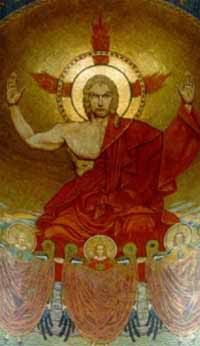At the beginning of their journey

Cardinal George Pell will warn the National Catholic Education Commission's annual conference today that young members of the church seem to regard life as a "smorgasbord of options from which they choose items that best suit their passing fancies".
link
They are in danger of becoming muddled about their faith, he will warn the Sydney conference. And although inadequacies of family life and religious education are factors, they are not the only ones.
Parents, parents, parents.
"Too many young Catholics have been led by the pressures of contemporary propaganda ... so their religious confusion is worse than that of all other young Australians," he says.
Cardinal Pell cautions that churches may be experiencing an acceleration in Christian "slippage, with Catholics slipping faster, although they have bigger numbers on the slope".
Catholic education is experiencing a "complex and turbulent process of change" with "only limited capacity to transmit our tradition and preserve our identity", he says, citing the findings of the recent Spirit of Generation Y survey produced by the Australian Catholic University, Monash University and the Christian Research Association. He was surprised to find a mere 10 per cent of Catholics between the ages of 13 and 29 believed "only one religion is true". This compared with a survey average of 11 per cent, and 34 per cent among "other Christians". For Anglicans, the figure was 14 per cent.
"The pressures on young Catholics beyond tolerance and ecumenism and towards muddle are evident here, channelled sometimes through the ill-effects of courses in comparative religion," says Cardinal Pell, also Archbishop of Sydney.
Worse than the low numbers identifying Catholicism as the one true faith, and "particularly disturbing" for Catholic educators, is that 75 per cent of young Catholics believe it is acceptable to "pick and choose beliefs".
Cardinal Pell says this indicates "a malaise and confusion in the general approach to life rather than just a few isolated points of heresy or unbelief".




0 Comments:
Post a Comment
<< Home